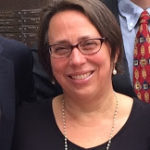
But Turmoil Comes . . .
24 “For my groaning comes at the sight of my food,
And my cries pour out like water.
25 “For what I fear comes upon me,
And what I dread befalls me.
26 “I am not at ease, nor am I quiet,
And I am not at rest, but turmoil comes.
(Job 3:24-26)
Traumatic loss or traumatic grief happens when there is a death of a loved one that is sudden, unexpected, and traumatic. For instance, when a death is a result of violent aggression or an event (such as murder or terrible accident). Or when a child finds a parent’s lifeless body, or a parent learns that their child, whom they happily sent to school that morning, will never return, because they were killed by a gunman. Traumatic death is difficult to process. “These mourners face the twin tasks of mourning the loss of their loved one and coping with the trauma that accompanied the death.”
A common theme I hear from those who have experienced such a loss, is that their life is changed forever. One moves forward because time demands this, but one does not necessarily move on. The fields of traumatology and thanatology (the study of death and dying, and bereavement), are brought together is these incidents of traumatic experience and loss.
Our prophets in the Hebrew Bible/Old Testament remind us that emotional pain and terrible grief are deeply understood and part of time itself. Paul Tillich posits that such despair is in fact, always part of the human condition. “The foundations of the earth do shake.” (Isaiah 24:18)
Not unlike our ancestors, I am scared and deeply disturbed by and for our nation. Yes, the foundations of the earth do shake, but we humans are failing at the most basic level: the care of our children, and our care for one another. No matter what our political beliefs may be, we all must agree that something is deeply wrong. How do we respond to and experience grief in desolate times? Particularly, when the grief is pervasive, and devastating on so many levels.
The movement from the despair of Holy Saturday to the rebirth of Easter holds hope for the trauma victim and for all of us. Michael McGowan maintains a “fruitful” relationship between theology and trauma theory may be reflected through the work of Hans Urs von Balthasar and his book, Heart of the World. Balthasar places importance on the concept of “Holy Saturday,” the space between Good Friday’s crucifixion and Easter Sunday’s resurrection. Jesus descends to hell and experiences a “second death.” Father and Son experience their greatest separation and in effect God dies. McGowan quotes Pitstick, “…there is nothing but nothingness itself. The world is dead. Love is dead. God is dead.” (McGowan, M., “Trauma and Grace: Psychology and Theology in Conversation,” in Journal of Pastoral psychology, 2009, vol. 58, (pg. 167-180), pg. 170.) Such divine revelation resonates deeply with many victims of abuse or violence. The subjective experience of shame and horror isolates. There is a deep sense of aloneness as one’s trust in self and humanity (and God) is shattered.
The loving witness of others is crucial to healing, and more so to survival. McGowan and Balthasar discuss the importance of presence in this solidarity of witness. In the depths of despair, from hell, there is a bridge built by the Holy Spirit. Balthasar writes, “It is a lightly built bridge, and yet it suffices to carry us….” (McGowan, M).
Yet it suffices to carry us in the darkest of times. God calls us forth in love. May it be so.

Jennifer Stuart
Jennifer Stuart is an ordained minister in the United Church of Christ. She serves as a community minister at First Church in Cambridge, MA, UCC. Jennifer, a clinical social worker specializing in psychological trauma, is a psychotherapist at the Danielsen Institute at Boston University.